 Image description: Portion of www.piedmontmusictherapy.com/about page that lists quarterly dates for board meetings, and an "Interested in Serving?" form to completing online. Image description: Portion of www.piedmontmusictherapy.com/about page that lists quarterly dates for board meetings, and an "Interested in Serving?" form to completing online. This is the eighth post in a series following Executive Director, Gretchen Benner's attendance of the York County Non-Profit Management Certificate Program - Rock Hill, SC. Joanie Winters, Attorney at Law, led a second informative presentation and last week's was titled “Legal Basics for Non-Profit Organizations.” PMT received many practical suggestions for state rules and regulations. The workshop series continued to share helpful tips, such as Piedmont Music Therapy needing to apply for a Bulk Mailing Rate due to its eligibility as a NPO. PMT does not have an attorney on our board, so we will stay in touch with Attorney Winters. Interested in supporting our mission through sharing your work or personal experiences? Consider joining PMT’s Board of Directors or Committees. If you do not have time to spare, consider supporting PMT’s bulk mail initiatives here!
0 Comments
Written by: Gabby Jones, MT-bC, Neurologic Music TherapistAs a person-centered clinician, I interact with so many families, caretakers, and loved ones connected to the people I serve. From parents to spouses to respite workers, I’m constantly delivering reports or updates about my clients’ progress in the music therapy space, and one of my favorite parts about the job is the concept of collaboration. It’s so important to be involved in the care of your loved one to amplify their success, but oftentimes, I find it hard to feel supported in the work that I’m doing with individuals. I think, “Are their parents seeing these differences at home?” or “Are other therapies addressing similar goals with them?”. As a clinician who advocates for continued, practical, meaningful transfer of skills for my clients, here are some ways client’s loved ones can support the music therapy journey:
Overall, collaboration is so important. We see the greatest success for clients whose support systems remain supportive. Music therapy is such a creative and fluid space, and we want to encourage creativity and fluidity outside of the work we do at our clinic. The people we serve deserve to feel as though we’re all in their corner - so let’s work together to achieve that goal!  Image description: Screen photo of Piedmont Music Therapy's Instagram page with 3 pinned posts, and 3 most recent posts of staff & people playing drums. Image description: Screen photo of Piedmont Music Therapy's Instagram page with 3 pinned posts, and 3 most recent posts of staff & people playing drums. This is the seventh post in a series following Executive Director, Gretchen Benner's attendance of the York County Non-Profit Management Certificate Program - Rock Hill, SC. Yesterday’s workshop overflowed with context and contacts pertaining to marketing and public relations. Adam Berstein, Alicia Broughton and Kenny McNett, from Chernoff Newman plus Michael Hollowa, from H Two Design, helped to educate our cohort on the necessity to engage and build a relationship-oriented presence through social media. PMT enjoyed this topic since this is a professional strength of our organization. PMT will reexamine its social media presence, to ensure clear alignment of its mission in greater Charlotte. Many new clients or curious community partnerships learn about our clinical through social media. Click here to fund PMT marketing efforts in social media. Piedmont Music Therapy appreciates the support of the SC Arts Commission for music therapists on staff at Piedmont Music Therapy to attend the Southeastern Region - American Music Therapy Association Conference in Atlanta, Georgia last month! Some of the takeaways included:
This was a valuable experience and PMT is grateful to the SC Arts Commission for its support!
 This is the sixth post in a series following Executive Director, Gretchen Benner's attendance of the York County Non-Profit Management Certificate Program - Rock Hill, SC. Josh Jacobson from Next Stage CLT led a workshop on Sustainability and Development. Josh’s name and company were familiar due to interactions with Charlotte is Creative and Tosco Music in Charlotte. PMT learned various reasons why donors may feel led to support an organization, and the important relationship that can be built to foster sustaining support. PMT was also introduced to the topic of “Social Impact Strategies” that exist with for-profit markets. PMT will consider ways to restructure our educational events in tandem with local business’ interest in supporting social change, such as sponsorship of community treatment programs. Swag (i.e. PMT branded apparel, pens or magnets) is a popular promotional item to gift to participants at local fairs and events. Click here to fund additional PMT Swag giveaways. We asked our team of board certified music therapists to take the quiz on page #19 to gauge their interest in being in the profession. The average score was 27. How would you or a friend fair with the questions? Try not to worry, there's no perfect score with fitting the personal qualities! Feel free to share this resource from American Music Therapy Association (page 19) with a high school student or other individual curious about pursuing a career in music therapy! Image description: "A Career in Music Therapy. An Allied Health Profession." A smiling professional sits beside a person with head phones, both looking downward. Variety of guitars barely visible in background of the room they sit within.
 This is the fifth post in a series following Executive Director, Gretchen Benner's attendance of the York County Non-Profit Management Certificate Program - Rock Hill, SC. Joanie Winters of Winters Law Firm, LLC led a workshop on “Legal Basics & Operational Accountability.” Attorney Winters recommended contents for Employee Handbooks. PMT found the information helpful when reviewing criteria for task effectiveness at work. When organizations consider how policies and practices support mission work and operations, it can strengthen the mission. An additional take-away was that PMT learned that Employee Appreciation Day is celebrated annually on March 1! PMT will annually recognize this occasion. PMT went an extra step and honored the presence and contributions of employees each Friday in March with treats at the staff entrance. If you would like to support staff acknowledgements, please choose an item from our Amazon Wish List! This is the fourth post in a series following Executive Director, Gretchen Benner's attendance of the York County Non-Profit Management Certificate Program - Rock Hill, SC.  Graphic of a person completing a clipboard with a music note on the backside. A spoken bubble appears with a "check mark" included. Graphic of a person completing a clipboard with a music note on the backside. A spoken bubble appears with a "check mark" included. William Drinnon, CPA of Burkett, Burkett and Burkett shared valuable information in regards to Financial Management of a non-profit organization. An underlying theme was the strong need of accountability and transparency. Adding internal controls in order to ensure minimal error was emphasized, such as intentional staff double-checking figures. It was intriguing to learn how to possibly adapt to a small organization, such as Piedmont Music Therapy. PMT is committed to integrity & ethical values. Last month's workshop emphasized the need to increase conscience controls for minimal risk with the organization's financial stability which has been a huge gift with the volunteers serving on the Board of Directors who have professional work experiences in finance. Learning about the intricacies of Form 990 through the Internal Revenue Service was interesting, too. PMT looks forward to publishing its first Form 990 in a few weeks. This informational tool will be a great way to share the numbers of our organization. I am grateful for Mr. Drinnon's presentation and will continue to apply strategies learned! 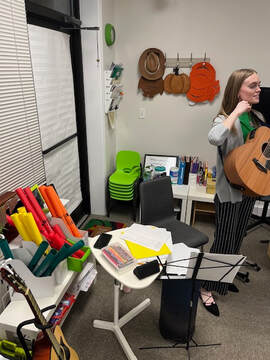 As we approach the end of 2024, staff took some time to reflect on some highlights from 2023. As music therapists in private practice, we work with people of all ages, abilities, and backgrounds on a regular basis. We’re blessed to share space with so many people, and it’s humbling to witness the power of music in so many different forms. Below are a few of our staff’s most memorable moments from the last year of work: Rumbling Recovery I have been humbled to return bi-monthly for co-facilitating drum circles at Charlotte Rescue Mission Dove's Nest. The residents forge such resilience and perseverance amidst their treatment. Witnessing residents genuinely connect, laugh and share with one another in their sobriety is an honor. Their honesty reminds me to focus on the present. -Gretchen Benner, LMSW, MT-BC I Hear Your Heart I was so blessed to lead an 8-week music therapy program with survivors of SA/V through Brave Step. The women were passionate about regaining confidence and building community through songwriting, improvisation, and poetry. Each session held new and creative pathways to combatting grief and trauma, and I was honored to witness the resilience these women held. -Gabby Jones, MT-BC, Neurologic Music Therapist 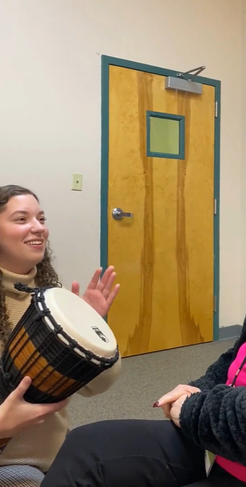 “It’s a Good Day for Singing a Song” We begin each session with this Peggy Lee hit at the Minds Matter Fort Mill location where I have thoroughly enjoyed leading music therapy groups for older adults. Each session I am able to witness participants engage in various activities and connect with one another through song. It’s so rewarding to see their bright personalities come together in a space where they can display their creativity and try new things! -Molli Smith, MT-BC 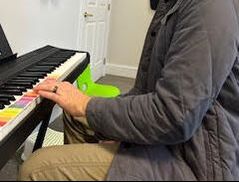 Music and Growth As a music therapist, I am honored to work with clients affected by stroke and how music can be used to facilitate growth as a person as well as a musician. -Melissa Reinhardt, MSEd, MT-BC, Neurologic Music Therapist Third post in a series following ED, Gretchen Benner's attendance of the York County Non-Profit Management Certificate Program - Rock Hill, SC.  Tiffany and Dr. Scott Whaley presented “Board Governance” during this month’s series. One of the takeaways from this lecture discussed the importance for Piedmont Music Therapy (PMT) to diversify its Board of Directors - building a strong team! With enough support PMT will be able to open a digital application process for interested service members. The shared motto by the Whaleys was “always be building your board.” The purpose of a Board of Directors is to act on behalf of the community while furthering the organization’s mission. PMT is grateful for its board members and their willingness to support our mission of providing music therapy treatment, music lessons and educational events in the greater Charlotte area. During our first year operating as an NPO (Non-Profit Organization), the extra level of accountability and support has been appreciated! The board also helps to dream into the future for capacity building. I look forward to attending the future lectures in next month and into 2024. Happy New Year and best wishes during your holidays! |
PMTProviding music therapy services for early childhood to older adults, music instruction and enrichment plus continuing music therapy education in Greater Charlotte Area of the Carolinas. Archives
May 2024
Categories
All
|
Piedmont Music Therapy is a 501(c)(3) status organization.
Piedmont Music Therapy accepts donations via venmo @piedmontmusictherapy or any amount through QuickBooks. Contact us to arrange an electronic pledge!
Main Location |
|
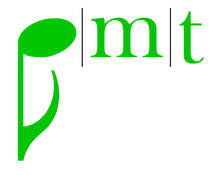

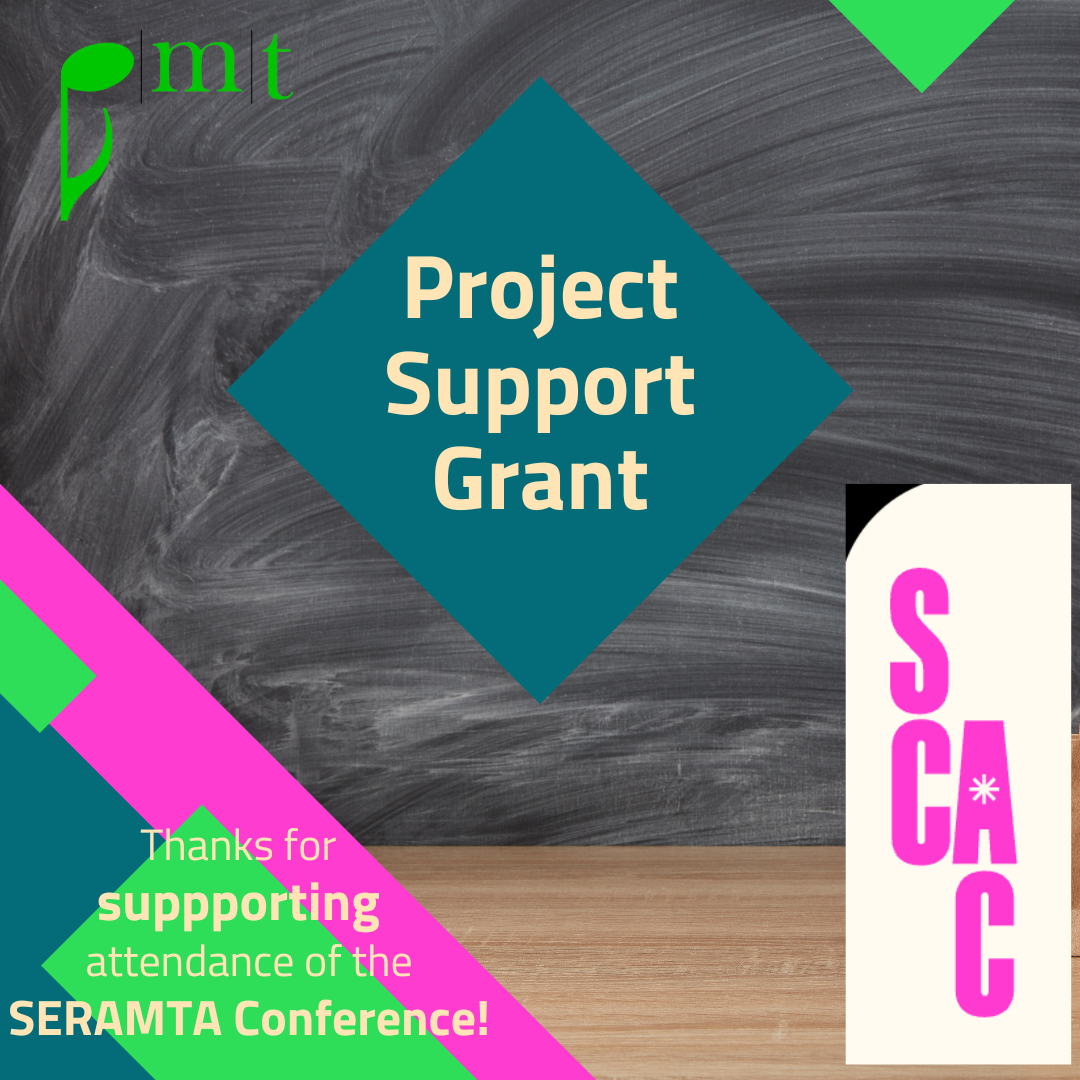
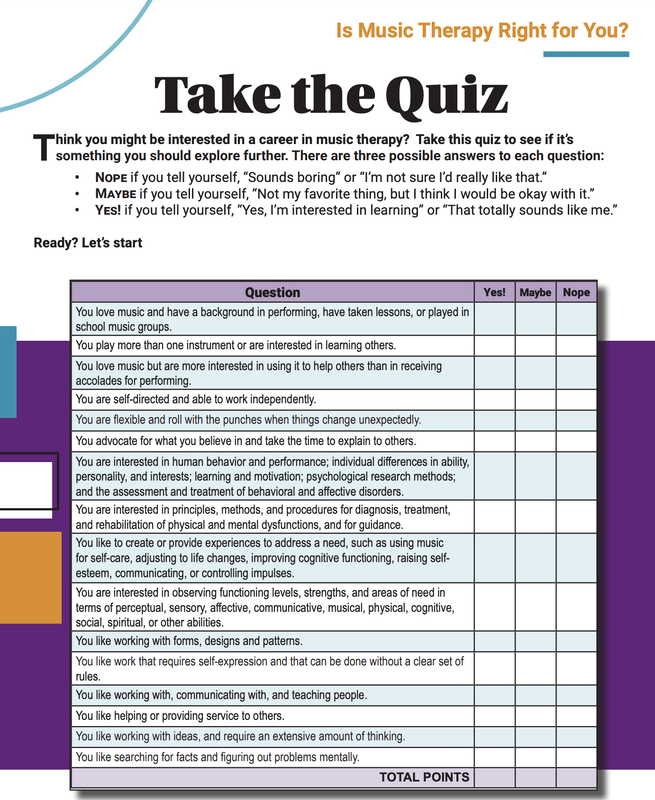
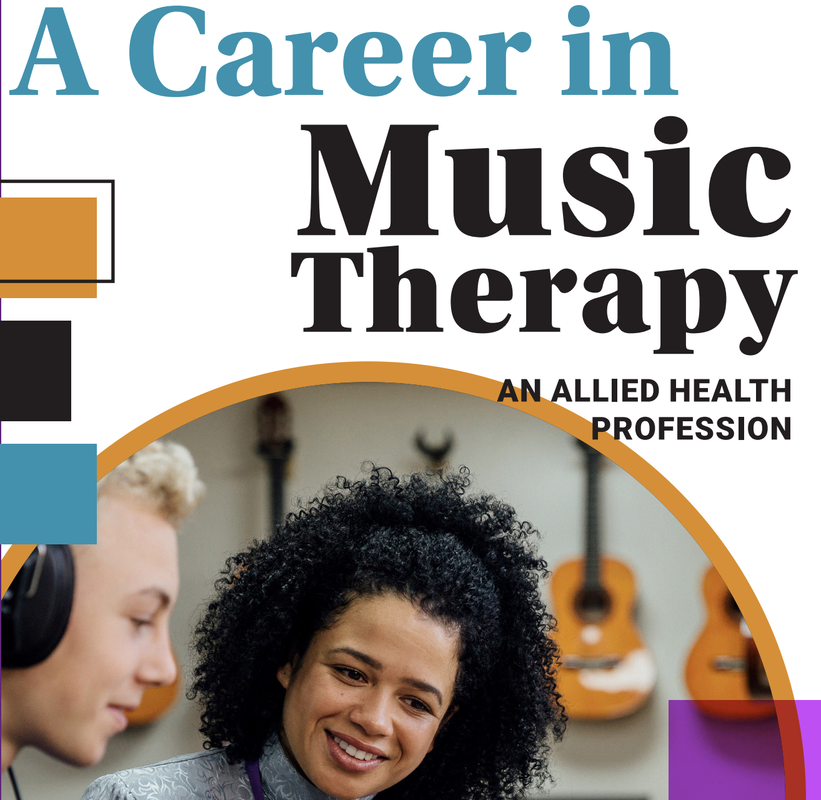

 RSS Feed
RSS Feed
